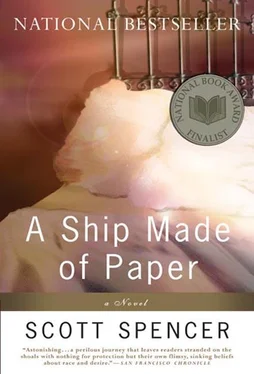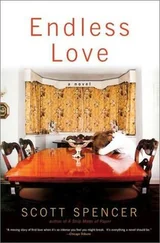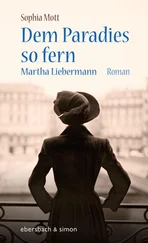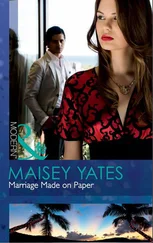The early afternoon train from Leyden pulls into Penn Station, and Iris, who has slept most ofthe ride and who nevertheless can barely keep her eyes open, stands up unsteadily and pulls her black nylon travel bag down from the overhead rack.She has packed one change ofclothes, a night-gown, a plastic zippered bag full oftoiletries (including her diaphragm), and a couple ofthick, heavy books—what Hampton calls, in his Johnny Carson voice,“weighty tomes”—she has been meaning to read for thesis research purposes, and which take up more room than everything else she has brought with her to NewYork.She has settled into a kind offugue-state ofemotional neutrality, allowing the two hours’silence and the rhythmic rocking ofthe train to lull her into a strange, sad peacefulness.
She realizes this time in the city alone with Hampton may well require ofher a degree ofwatchfulness, a certain deftness ofemotional ma-neuvering.
The arrangement is that she will taxi down to the apartment, and Hampton—who is meant to play squash at the DowntownAthletic Club with a Jamaican rum bottler—will meet her there no more than halfan hour later.But as soon as Iris steps offthe train, she sees Hampton wait-ing for her on the platform, craning his long neck and trying to pick her out ofthe stream ofarriving passengers.She knows this is meant to pleasantly surprise her, but the sight ofhim makes her spirits plummet.
He looks like a teacher striding down the rows ofdesks, passing out the questions to a surprise quiz.
He sees her.He raises his hand to signal her and she sees that—horrors—he is holding a long-stemmed rose.He has undoubtedly bought it from one ofthe vendors right here in Penn Station, but nevertheless he waves the flower at her, to signal her that this Saturday in Manhattan is meant to be one ofhigh romance.
“What happened to your squash game?”Iris says, as Hampton kisses her cheek, takes her bag offher shoulder and hefts it onto his.
“I wanted to meet you,”he says.
This leaves the question about his squash game unanswered.It isn’t like Hampton to put personal life over business—actually, Iris has always liked this aspect ofhim—and she suspects he is here on the warm, smoky, stinking-of-diesel-fuel platform because his game has been cancelled.
She lags behind him as they make their way out.There’s an escalator, but Hampton always chooses the stairs, for the sake offitness.She ad-mires his body as she walks behind him.He is wearing his Saturday at-tire:khaki pants, a white polo shirt under a dark-green cashmere sweater, brown loafers.Even his casual clothes are carefully chosen, crisply ironed, but ofcourse there are no casual occasions for Hampton, not at the dinner table, not in bed, and certainly not out in public.
“Everything okay up in the country?”he asks.“How’s Nellie?”
She doesn’t bother to answer.He doesn’t really expect an answer, he’s just recording the fact that he’s asked.Yet when they reach the main hall ofthe station, Hampton surprises her and repeats the question.
“Everything cool with Nellie?”
The simple, truthful answer would be:No.Nelson has been agitated, clingy, explosive, nagging, and oppositional.He has been putting Band-Aids on his hands and knees without any physical reason for doing so.He has been cruel to Scarecrow to the point where the usually patient and forgiving old dog will leave the room when she hears Nelson’s footsteps.
Every night since the storm—except when Hampton has been home—Nelson has come into her bed between midnight and two and slept there until he woke both himself and his mother by peeing his pajamas.And when she has whispered to him,“Nelson, get up, let’s change your pj’s,”
he has screamed at her like some crazed motorist on the freeway after a fender-bender.This morning, when she was backing her car out ofthe driveway, he was straining to break free ofIris’s sister, who had driven her sporty little green Mazda up from Baltimore two days earlier to spend a little time with Iris before the weekend, and to give Nelson time to get used to her.Whatever level oftrust and comfort he had reached seemed to be obliterated by the sight ofIris actually leaving:he was not only kicking and howling but he was also trying to sink his teeth into his aunt’s restraining hand.
“He’s okay,”Iris says.“He was nervous about my leaving, but he loves Carol, so that made it a little easier.”
“He’ll be fine,”Hampton says.He dislikes Carol, thinks ofher as promiscuous, brassy, silly, unread;he cannot bear her prattling on about her real estate business.She is unmarried, her days are full ofoffice tasks and her nights are full ofboyfriends.Yet he cannot say anything critical ofCarol, not now.It was, after all, his idea that he and Iris spend the weekend alone in the city together, and it was, he supposed, up to her to choose who would mind Nelson.
He knows that the energy is down between them right now and he has a pretty clear idea what the trouble is:she feels neglected, the ro-mance oftheir life together has been subsumed by dailiness, it’s an old story, even the men he sees in business, with whom he almost never has a personal conversation, hint that their own clever wives grumble about the lack ofattention being paid to them, even ifthe wives themselves are in business, making deals, returning calls through the night.And Iris feels isolated, maybe even abandoned up there in Leyden—it cannot help but add to the mix ofIris’s difficulties that she is swimming in a white sea.
And so, without exactly planning it that way, Hampton escorts her on a black tour ofManhattan:lunch at a black-owned, mostly black-frequented restaurant in the theater district, a place oflarge comfortable booths andArt Deco mirrors, where gorgeous black women in black pants and black silk shirts serve them crab cakes and collard greens, and after lunch a cab ride up near Harlem, where Hampton shows Iris a block ofderelict brownstones a developer is in the process ofsnapping up.The developer is looking for investors and he has come to Hampton to help him put together an offering statement, but what Hampton wants to know is ifIris thinks it might make sense for they themselves to put in one hundred thousand dollars, that way they could make a little money and do a little good, it’s always nice when the two can be com-bined.FromAmsterdamAvenue, they go to a newly opened Black Cul-ture Museum, which was inaugurated with some fanfare onAdam Clayton Powell Boulevard a month ago, and which turns out to be not much more than a storefront but has a nice exhibition ofnineteenth-century photographs.The place is filled with people whom one does not normally see in a museum—church ladies dressed like birds ofparadise in their vermilion, chartreuse, and salmon dresses, and wrinkled old men in baggy suits.
After, Iris and Hampton take a taxi all the way down to Jane Street, through crawling, seething, honking Saturday traffic.Hampton, to keep himself from staring at the taxi’s meter, and to make the most ofhis time with Iris, does something that is not exactly his style:he begins to kiss her, right there in the cab, with the Chinese driver undoubtedly spying on them.Iris has always been the one pushing them to be a little cozier with each other in public, the one sort ofthing that struck Hampton as exhibitionist, distasteful, and, frankly, unsafe—you never knew who would be triggered by the sight oftwoAfrican-Americans kissing.And now, when he is not exactly in the mood for public display but never-theless feeling that a little conjugal vulgarity might be just what the doc-tor ordered, he discovers that he has, alas, been successful in training Iris away from kissing in cabs:her lips barely respond to his, and when he presses them more forcefully against her, she gently shoves him away and looks at him as ifhe were a naughty little boy, or a fool.“I feel a little sick from that lunch,”she says apologetically.“I think the crab might have been a little off.”And then, as ifshe were systematically obliterating the day, like someone knocking the heads offflowers with a walking stick, she says,“I don’t think we should be investing in those apartment houses, Hampton, I really don’t.I think they’re depressing, and all those devel-
Читать дальше












